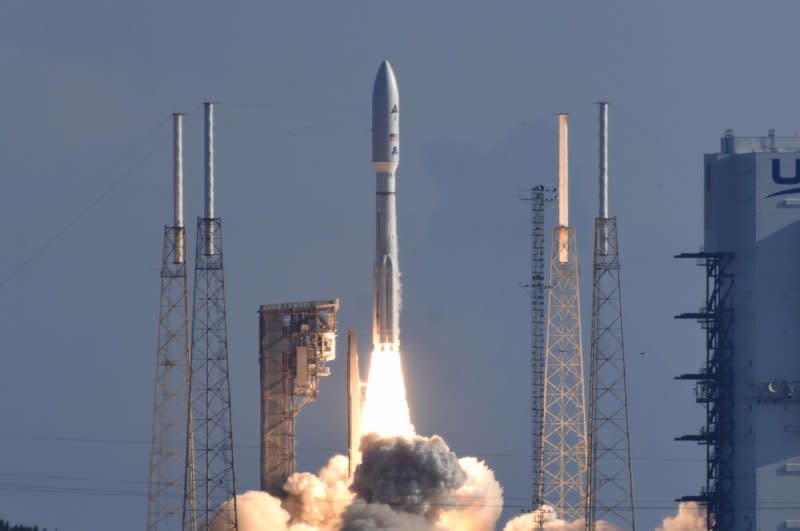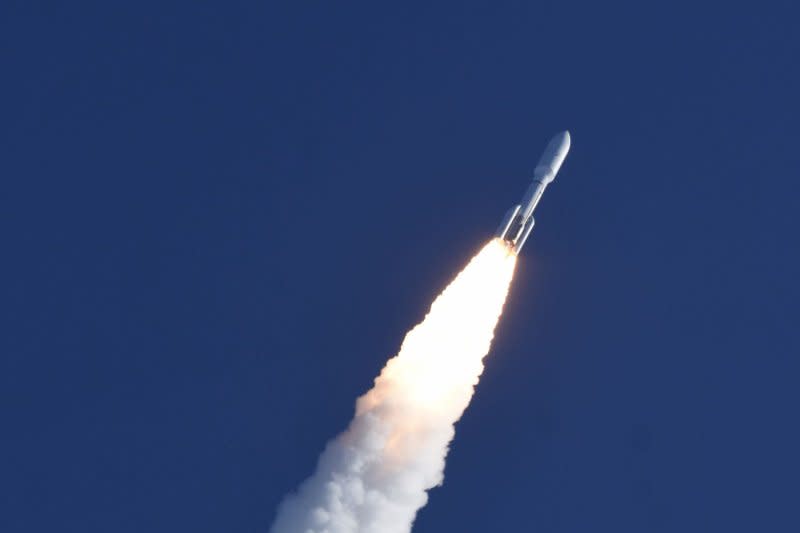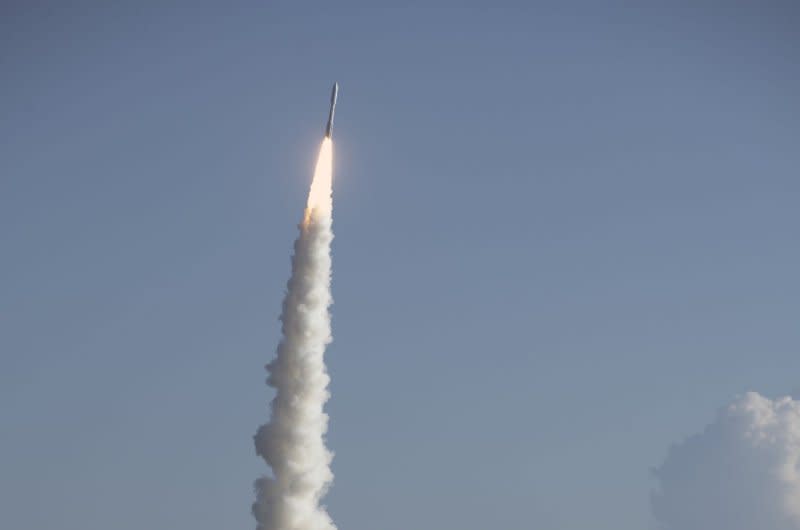United Launch Alliance launches Atlas V rocket on defense mission

Sept. 10 (UPI) -- United Launch Alliance sent its Atlas V rocket into space Sunday morning as part of a joint mission with the U.S. Space Force and National Reconnaissance Office to "improve space domain awareness."
The mission launched the payload Silentbarker/NROL-107 on an Atlas V 551 variant -- nicknamed "The Bruiser" by chief executive Tory Bruno -- at 8:47 a.m. EDT from Launch Complex-41 at Cape Canaveral Space Force Station in Florida.
The rocket has flown dozens of times, including the launches of NASA's New Horizons -- the first spacecraft to encounter Pluto -- and NASA's Juno mission to Jupiter.
"Atlas V is a reliable workhorse for U.S. national security, successfully delivering more than 50 missions into space to serve the U.S. Space Force and National Reconnaissance Office," the company said in a post on social media.

The company said in a statement that Sunday's mission serves the needs of the U.S. Defense Department and intelligence community by "providing the capability to search, detect and track objects from a space-based censor for timely custody and event detection."
Surveillance from space allows the government to overcome existing ground sensor limitations. From space, the government will be able to collect timely satellite metric data around the clock.

"Silentbarker/NROL107 will strengthen the NRO's ability to provide a wide range of timely intelligence information to national decision makers, warfighters and intelligence analysts to protect the nation's vital interests and support humanitarian efforts worldwide," the statement reads.
The launch had previously been scheduled for Aug. 28, but was scrubbed because of the potential impact of Hurricane Idalia. The company rolled back the rocket into its facility to wait for the storm to pass before deciding on a new launch date.

It was postponed again Saturday after "an issue found during a prelaunch ordnance circuit continuity check," according to the company.

